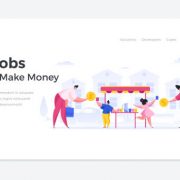This is a piece of expert opinion compiled by experts on what might happen when RIFA goes into effect. Here, we’re discussing worst-case scenarios. It’s not yet time to panic.
The FCC has repealed Net Neutrality laws. You’re in Digital; who am I kidding? You know. Anyone who hasn’t lived under a stone or on a remote, uninhabited island knows.
The internet we have known for many years is at risk. The FCC Commission, on the morning of 14 December 2017, voted 3 to 2 in favor of the “Restoring Internet Freedom” Act. This is not going to be another article about how hypocritical the name of this Act is or that we urge you to contact your local Government representatives and voice your concern over unfair advantages given to ISPs. There have been many articles written on this subject. Go and search it now while it is still free.
We are here to share our expert opinion about how the passage of the “Restoring internet freedom” Act (also known as RIFA because typing it out is frustrating to me) will impact the field of Digital Marketing. Pat and I spoke with leaders from each department of Power Digital to get their insight and to see how this would shake out in the industry.
I’ll start with some takes on how it’ll affect overall Digital advertising and then move into department-specifics.
Digital In General
We can say right away that the overall traffic to any website will drop off significantly due to the ‘Pay to Play” model. No matter which digital channel you use, it will affect your business.
- There will be fewer people interacting with your posts. Instagram will have fewer users (unless you pay the $14.99/month access package to Platinum Social Media).
- Your blog will be read by fewer people (unless you upgrade to the Premium Lifestyle Blog access package at only $29.99/month)
- Fewer people will read your client’s placement on Forbes (unless… they upgrade).
- Fewer people can access your website through organic search… or other methods.
You get the idea. The internet will become less accessible to people if internet access is restricted and “toll booths,” or similar, are installed throughout. You’ve probably seen the 405 at rush hour. Imagine toll booths on every exit.
Yeah. It’s bad news.
E-commerce metrics may suffer. Now, attracting quality leads has a new variable: whether the information has access to your website.
With the addition of new variables, A/B testing has become less important. Say goodbye to 50/50 testing if this happens. The data will no longer tell you whether a piece of creative resonates well with a particular audience. It would only indicate if the audience has paid to access your site.
We might as well get it right if we’re going to wear our “journalists” hats today for a few minutes. Digital isn’t all bad news.
Pay to Play could help you prequalify traffic if your premium service requires a significant investment by your customers. If your customers have to pay to access the service, they are more likely to be able to afford to purchase it.
Pat and I both believe that ISPs will sell access to customer packages as ‘Big Data’ to data aggregation platforms like Oracle. You could target your efforts according to the ‘tiers’ of internet packages purchased by ISP customers. Truly, truly exciting.
This could lead to more competition in the ISP sector, which may not be a good thing.
Here’s our take on how this will affect each Digital channel. (Thanks to Bill, Austin Sam, Amanda John, and Alexa for their departmental insights! )
PPC Ads
As we are diving into each channel, I thought it would be best to begin with my area of expertise – PPC Advertising. The majority of what I discussed earlier can be used for anything PPC. However, there are some specifics that we want to share.
More clicks will be wasted on ads. Say you are advertising for a local sports league, and 20% of people who click on your ad did not purchase the “Local Community Site” access package. These 20% of people who clicked on your ad would not be able to access your website.
Google’s response to this will be interesting. They may charge for clicks that are not used, but it could waste ad dollars. Google should either refund these costs, similar to the way they deal with bot traffic or figure out a way to stop serving ads to those who don’t have access.
A second negative is that fewer people are getting to where they want to be on the internet, which means marketers have less data to analyze. This makes it more difficult to optimize and do our jobs. There is less data for Google/Facebook/etc.’s algorithms to optimize off of as well.
Data analysis is at the core of SEM, and this data must be clean (for want of a better word). This is a situation that I am not at all happy with.
SEO // On-Site Content
SEO-invested companies (basically every company) may suffer in organic rankings. Throttling is a way to ruin the User Experience that SEO is about. We’ll need to wait and see what Google’s algorithm team does to show organic listings to those who can’t view certain websites.
The ‘Pay to play’ model could cause smaller sites that can’t afford to pay for the premium packages to be pushed out of the top rankings by larger sites.
Finally, any unanticipated change in organic search activity will have a major impact on the ability of an SEO to predict and optimize. As we mentioned earlier, SEOs will have less insight into ranking factors because traffic is segmented even before it reaches the SERP. Austin and Bill believe that the search trends will drastically change and that the data on search trends will become less accurate.
This is also a part of the work done by our Content Department. It doesn’t matter if we write the best content if the people who want to read it can’t access the site. Since the last few years, quality content has played a major role in SEO rankings because it enhances the user experience (which Google already loves). RIFA would reduce the positive effect that content has on order.




















Comments